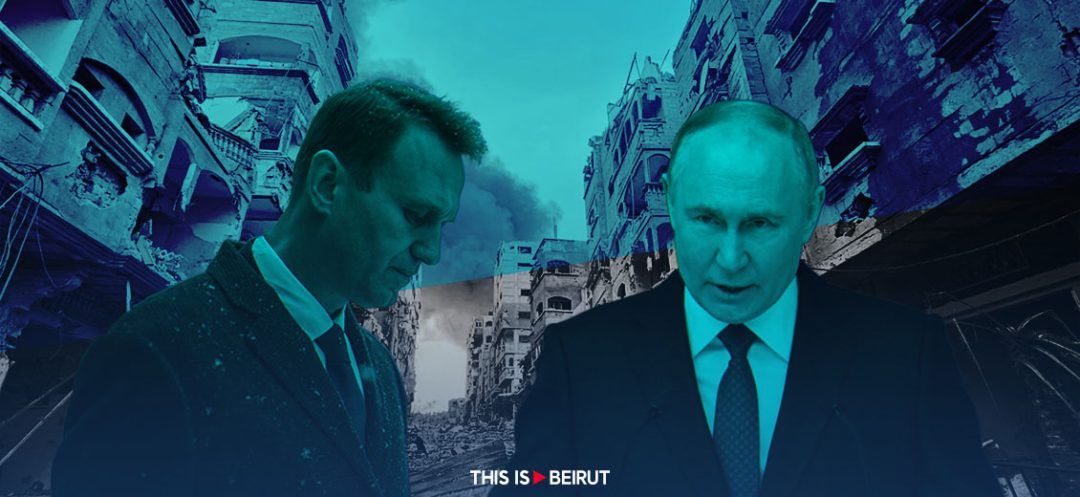- Home
- War in the Middle East
- Strategic Dilemmas and Treacherous Terrains

A simple overview of the regional and international landscapes is enough to gauge the gaping voids and expanding hazards. The complexities of the world order are building up on the intersection between internal conflicts and the emerging fault lines of the new Cold War. Tackling these issues from both analytical and strategic standpoints presupposes an integrated cognitive framework. The war in Ukraine and the fierce repression of the opposition in Russia, the renewed cycles of violence, the cascading State failures in the Middle East and subsaharan Africa, and the expanding realm of Iranian power politics and islamist terrorism in subsaharan and North Africa illustrate the integrated nature of the composite conflicts and their impact on geopolitical dynamics.
The assassination of the antithetical figures Alexei Navalny (1976-2024) and Yevgeny Prigozhin (1961-2023) and the massive crackdown on the oppositions in Russia and Bielorussia are the counterparts of the war in Ukraine. This war is the outcome of the neo-imperial drive of the Russian autocracy, the downfall of the democratic reforms and the relegation of its European intellectual inspiration and strategic moorings. If we fail to grasp the nexus between the failure of democratization and the rise of the warmongering autocracies, we end up missing the kernel of the ongoing conflict dynamics. Europe and the transatlantic alliance have no other choice but to buttress the Ukrainian defenses and redress the military imbalances, since the defeat of Ukraine is detrimental to European strategic security, political and normative consensuses, and civilizational realm. The fascist and warmongering offensives are challenging Western security and are highlighting, once again, the dilemmatic nature of the Russian identity, oscillating between the liberal European heritage and the tropism of “oriental despotism,” featured throughout the Russian history.
Putin’s rise to power correlates with the restoration of “oriental despotism” running from Ivan the terrible (1547-1584) to the bolcheviks (1917-1989), and blunting the Aufklärung legacy of Peter the Great (1682-1725) and the Great Catherine (1762-1796). The martyrdom of Alexei Navalny is a watershed in the post-Cold War Russian history, since it highlights the gist of the conflict in Ukraine: the purported scenario of NATO’s inroads within the Russian strategic realm should be set in parallel with the liberal reformist counter-narrative which accounts for the true rationale behind this unjustified war of choice. Sheltering behind the hidebound pan-slavism and instrumentalizing its ideologues (the emblematic figure of Alexander Dugin, 1962-?) and the nationalist Church led by Patriarch Kirill I (2009-?), Putin found the proper ammunition to feed the rhetoric of an unjustified war and its trailing antecedents and subsequent tragic outcomes. Putin is apprehensive of Western liberalism, its cultural subtexts and strategic purview. NATO and the EU are left with no other choice but to confront Putin, uphold the internal oppositions embodied by the Navalny saga and heroic martyrdom, and prepare for the imponderables of the United States' upcoming presidency.
The Israeli-Palestinian conflict cycle was jump-started in the aftermath of the October 7, 2023 massacre, and revived the impasses of a lingering conflict which failed a far reaching bequest of international mediations and resolutions, and the haphazards of a centennial coexistence. The dramatic plot of this conflict lies in the inability to uphold whatever agreements solemnly hailed in the Camp David declarations (1979), the Madrid conference (1991), and the White House-celebrated Oslo accords (1993-1995) and their derivatives. The repeated relapses highlighted the lingering mutual distrust between Israelis and Palestinians, the inability of the Palestinians to build their moral and political autonomy and put an end to the instrumentalization of their right to national self-determination by alternating power politics, the surge of ultranationalist and messianic movements amongst Israelis, and the rekindling of extremism and zero sum politics spotlighted by the Palestinian motto ”no reconciliation, no peace, no recognition,” Hamas' indiscriminate terrorism, and the zealotry of Israeli colonizers. The terrorist attack of October 7 was a major blow to decades of mediations and peace keeping endeavours. The manipulation of the Palestinian scenery by Iranian power politics and its scale of strategic priorities are major obstacles to peace and political arrangements.
The volatility of the political and military context is unlikely to subside unless the major strategic issues are addressed in Gaza, South Lebanon and the Golan heights frontlines. International mediation brings back the hibernating conflict to the table of negotiations in order to tackle the pending issues of strategic security, mutual acknowledgment and dual statehood.
The decaying civil peace in Subsaharan Africa and the inability to engage stateness dynamics and internalize its prescriptive mandates account for failing legitimacy, chronic civil instability, the unleashing of various bouts of Islamic extremism and organized criminality, the widening of the wasteland expanses, and the increasing tide of massive migration and its destabilizing effects throughout Europe and Western democracies. Otherwise, the Arab Middle East failed the reformist interlude of the “Arab spring” and entered the maelstrom of destructive internecine conflicts which questioned the viability of the interstate system, the possibility of establishing a working State system and integrating the notions of constitutional statehood, legal entitlements, effective citizenry and integrated development.
These cumulated deficits are at the root of geopolitical and civil unrest, the long-standing crises of legitimacy, the migratory waves and their incidence on the overall societal and political equilibriums within countries and across the various geopolitical spectrums. Unfortunately, the structural traits of this endemic instability served as locomotives of contending power politics and fuelled the ongoing civil wars that are deftly manipulated by regional and international power players. The unintended consequences of the US invasion of Irak and its false analogies with the post-WWII reconstruction and democratization schemes in Europe, and the respective roles of Iran, Russia and Turkey have led to major geopolitical breakdowns and contributed to the festering and freezing of conflicts, whereas the alternative agendas of peace making, conflict resolution and developmental concerns were deferred to the sidelines of public life. Power politics is the overriding ordering variable which defines the playbook and the political horizon of political actors. Every other political issue is deemed tangential, let alone irrelevant, whenever it comes to defining the order of priorities. One wonders, how would a peace process hold when the pillars of working statehood and geopolitical stability are literally subverted and relegated to immateriality.
Read more



Comments